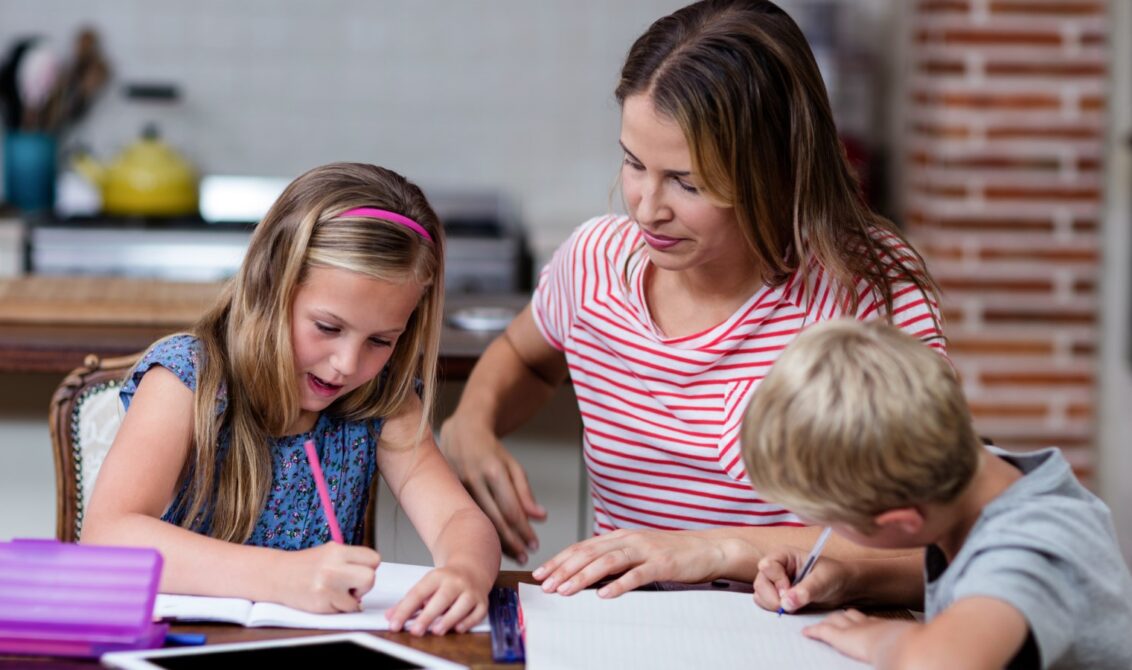
We asked two leading parental engagement experts some questions about the role parents have to play when it comes to preventing and tackling maths anxiety among children. And, here’s what we learned:
.jpg)
“If we can help parents conquer their own maths anxiety and believe that everyone can succeed in the subject, this confidence will be passed on to their children.”
Eleanor Dix, Product Manager, Pearson

“Parents are children’s first and most important teachers throughout their life… they have the ability to prevent their children becoming anxious about maths.”
Tom Harbour, CEO, Maths with Parents
How can parents help to prevent and tackle maths anxiety among children?
Tom: “Parents are children’s first and most important teachers throughout their life. By showing that maths links to their real life and can be enjoyable, they have the ability to prevent their children becoming anxious about maths. By bringing maths into activities that they do together like cooking, shopping and routines, they can help children to see how rich the world of maths is.
If their child does become anxious about maths, parents are there to manage that anxiety, and help bring their children out of an initial anxious state before attempting tasks. Activities such as teddy bear picnics to explore fractions are great for getting round a child’s anxiety, as the “right answers” are not the focus – rather it is on making sure each teddy gets their fair share.”
What can parents do to help their children become more confident and resilient maths learners?
Eleanor: “They can believe that everyone can do maths, and communicate this attitude to their children. Growth mindset theory says that ‘cleverness’ is not fixed, but by working hard and not giving up, everyone can achieve. Don’t say ‘I was rubbish at maths at school!’, as this lack of confidence can easily be passed on to children.
Parents can help their children develop a growth mindset by:
- Saying it’s OK to get it wrong. Making mistakes is part of how we learn.
- Praising hard work and learning rather than ‘getting it right’. This helps children try harder, take risks and be determined. Try not to say ‘You’re so clever’ because this gives the idea that cleverness is a fixed quality, and next time they get something wrong, their ‘cleverness’ has deserted them.
- Using positive language when their child is doing maths. Say ‘Everyone can!’ and instead of saying ‘I can’t solve it’, say ‘I can’t solve it…yet!’. This one little word makes all the difference.”
What are your top tips for schools to engage parents with maths positively?
Tom:
- The focus needs to be on the at-home interactions between parent and child. They should be fun, quick and link to the real world.
- Instead of traditional child-centric homework, why not set fun activities which include the parents as an integral part, where the focus is not on reaching a single correct answer.
- Provide parents with resources which support their understanding of the new techniques used at school.
- Reward and motivate children to engage with their parents, but don’t mark down those who don’t – it is unlikely to be the child’s fault.
Eleanor:
- Give parents ideas for real life maths they can do at home with their children, e.g.
Play ‘rock, paper, scissors’ but instead hold up a number of fingers. First person to shout out the total number wins.
Make a ‘shop’ with your children’s toys, each with a price on. Use real coins to pay the correct prices.
Hunt for shapes around your home and take pictures on your phone to check you’ve found them all.
Practise number bonds with 10 grapes. Hide some of the grapes under a bowl. Your child can use their number bonds to 10 to say how many grapes are hiding. - Encourage parents to help their children learn their times tables. Times tables help with fractions and much more, and are often something that parents remember and feel comfortable with.
- Ask parents to use the growth mindset when doing maths with their child, remember, “everyone can do maths”!
See more ideas for maths games parents can play at home with their children in Five maths games for parents and children to enjoy together
About our contributors
Eleanor Dix is a Product Manager at Pearson, publishing Primary Maths resources for children to get stuck into at school and at home. Eleanor is the mastermind behind School Jam, an app for schools to engage parents with their children’s learning in maths.
Tom Harbour is the founder and CEO of Learning with Parents, who run www.mathswithparents.com and are developing English with Parents. He taught for five years in Leicester and in Germany. Through completing a Masters researching parental engagement, Tom saw what an important role parents have in supporting their child’s learning. He has delivered training about parental engagement to school leaders across the UK and to change makers from USA, Africa and Europe. He also leads the Parental Engagement Action Group.
A version of this article was originally published on the Pearson UK Schools blog on 10 January 2020.

